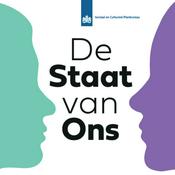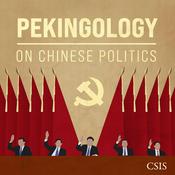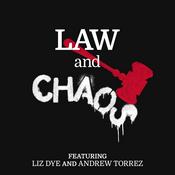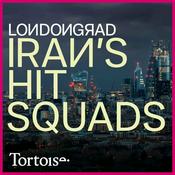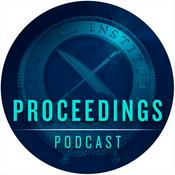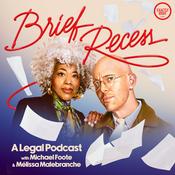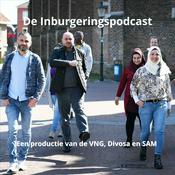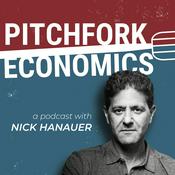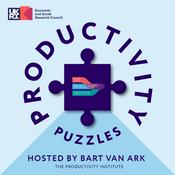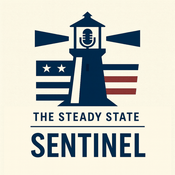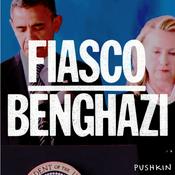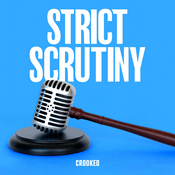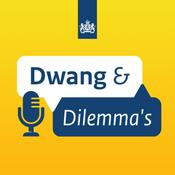45 afleveringen
- January 30, 2026 marks the 50th anniversary of Buckley v. Valeo, a landmark First Amendment speech clause case. While the podcast normally airs current oral arguments, we thought that it would be interesting to spotlight the oral arguments in this landmark case during month of its anniversary.
Episode 44: Buckley v. Valeo
James L. Buckley, et al. v. Francis R. Valeo, Secretary of the United States Senate, et al. argued before the Supreme Court of the United States on November 10, 1975 and decided on January 30, 1976. Argued by Ralph K. Winter, Joel M. Gora, Brice M. Claggett, and (on behalf of James L. Buckley) and Daniel M. Friedman, Archibald Cox, Lloyd N. Cutler, and Ralph S. Spritzer (on behalf of Francis R. Valeo).
Case Background [from the Federal Election Commission]:
On January 2, 1975, the suit was filed in the U.S. District Court for the District of Columbia by Senator James L. Buckley of New York, Eugene McCarthy, Presidential candidate and former Senator from Minnesota, and several others. The defendants included Francis R. Valeo, Secretary of the Senate and Ex officio member of the newly formed Federal Election Commission, and the Commission itself. The plaintiffs charged that the Federal Election Campaign Act (FECA), under which the Commission was formed, and the Presidential Election Campaign Fund Act were unconstitutional on a number of grounds.
On January 24, 1975, pursuant to Section 437h(a) of the FECA, the district court certified the constitutional questions in the case to the U.S. Court of Appeals for the District of Columbia Circuit. On August 15, 1975, the appeals court rendered a decision upholding almost all of the substantive provisions of the FECA with respect to contributions, expenditures and disclosure. The court also sustained the constitutionality of the method of appointing the Commission.
On September 19, 1975, the plaintiffs filed an appeal with the Supreme Court, which reached its decision on January 30, 1976.
Questions Presented, from the Appellants' Brief:
1. Did the Court of Appeals correctly conclude that the limitations imposed by FECA on expenditures by political candidates and organizations are constitutional?
2. Did the Court of Appeals correctly conclude that the limitation imposed by FECA on expenditures by any person relative to a clearly identified candidate are constitutional?
3. Did the Court of Appeals correctly conclude that the limitations imposed by FECA on contributions to political candidates and organizations are constitutional?
4. Did the Court of Appeals correctly conclude that the disclosure requirements imposed on political candidates, organizations and individuals by FECA are constitutional?
5. Did the courts below correctly conclude that the public financing provisions of FECA and Subtitle H of the Internal Revenue Code are constitutional?
6. Did the Court of Appeals correctly conclude that the method provided by FECA for appointing members of the Federal Election Commission is constitutional?
7. Did the Court of Appeals properly decline to decide whether certain powers conferred upon the Federal Election Commission by FECA are constitutional?
8. Are the powers conferred upon the Federal Election Commission by FECA constitutional?
Resources:
Supreme Court Opinion
Institute for Free Speech Analysis
C-SPAN Buckley v. Valeo Panel 1
C-SPAN Buckley v. Valeo Panel 2
C-SPAN Buckley v. Valeo Panel 3
The Institute for Free Speech promotes and defends the political speech rights to freely speak, assemble, publish, and petition the government guaranteed by the First Amendment. If you’re enjoying the Free Speech Arguments podcast, please subscribe and leave a review on your preferred podcast platform. To support the Institute’s mission or inquire about legal assistance, please visit our website: www.ifs.org Can Congress Limit Coordination Between a Party and Its Candidates? (National Republican Senatorial Committee, et al. v. Federal Election Commission, et al.)
09-12-2025 | 2 u. 10 Min.Episode 43: National Republican Senatorial Committee, et al. v. Federal Election Commission, et al.
National Republican Senatorial Committee, et al. v. Federal Election Commission, et al. argued before the Supreme Court of the United States on December 9, 2025. Argued by Noel Francisco (on behalf of National Republican Senatorial Committee), Sarah M. Harris (on behalf of the federal respondents in support of petitioners), Roman Martinez (Court-Appointed Amicus Curiae defending the law), and Marc Elias (Counsel for Intervenor-Respondents DNC, DSCC, and DCCC).
Question Presented, from the Supreme Court docket:
A political party exists to get its candidates elected. Yet Congress has severely restricted how much parties can spend on their own campaign advertising if done in cooperation with those very candidates. 52 U.S.C. § 30116(d).
In an opinion by Chief Judge Sutton, a 10-judge majority of the en banc Sixth Circuit agreed that these so-called “coordinated party expenditure limits” stand in serious tension with recent First Amendment doctrine. App.10a-15a. It nevertheless upheld them as constitutional, both on their face and as applied to coordinated political advertising (“party coordinated communications”), believing the case to be controlled by FEC v. Colorado Republican Federal Campaign Committee, 533 U.S. 431 (2001) (Colorado II). In doing so, the majority acknowledged that in the 23 years since Colorado II, this Court “has tightened the free-speech restrictions on campaign finance regulation,” that “tension has emerged between the reasoning of Colorado II and the reasoning of later decisions of the Court,” and that relevant facts have “changed, most notably with 2014 amendments” to the limits and “the rise of unlimited spending by political action committees.” App.3a-4a, 11a. But it thought “any new assessment of the validity of the limits” remained the Supreme Court’s “province, not ours.” App.14a-15a.
The question presented is:
Whether the limits on coordinated party expenditures in 52 U.S.C. § 30116 violate the First Amendment, either on their face or as applied to party spending in connection with “party coordinated communications” as defined in 11 C.F.R. § 109.37.
Resources:
Brief for the Petitioners NRSC
Brief for the Respondents FEC
Supreme Court Docket
Sixth Circuit Oral Argument Audio
Institute for Free Speech SCOTUS Amicus Brief
Campaign Regulations Are Unconstitutional, by Bradley A. Smith, The Wall Street Journal
The Institute for Free Speech promotes and defends the political speech rights to freely speak, assemble, publish, and petition the government guaranteed by the First Amendment. If you’re enjoying the Free Speech Arguments podcast, please subscribe and leave a review on your preferred podcast platform. To support the Institute’s mission or inquire about legal assistance, please visit our website: www.ifs.orgCan the Government Constitutionally Use Broad Subpoena Power in a Way that Chills Nonprofit and Donor Speech? (First Choice Women’s Resource Centers v. Platkin)
03-12-2025 | 1 u. 22 Min.Episode 42: First Choice Women’s Resource Centers v. Platkin
First Choice Women’s Resource Centers v. Platkin, argued before the Supreme Court of the United States on December 2, 2025. Argued by Erin Morrow Hawley, Alliance Defending Freedom, and Vivek Suri, Assistant Solicitor General (on behalf of First Choice Women’s Resource Centers), and Sundeep Subramanian Iyer, Chief Counsel to the Attorney General of New Jersey (on behalf of the state of New Jersey).
Case Background, from the Institute for Free Speech case page:
First Choice Women’s Resource Centers is a Christian medical nonprofit serving pregnant women, new mothers, and fathers. The Attorney General of New Jersey has specifically singled out this organization due to its religious beliefs and pro-life stance. New Jersey thus issued a sweeping and unjustified subpoena, demanding extensive documentation from the nonprofit. This places a heavy burden on the organization, forcing it to allocate its limited resources to comply or face legal consequences. Despite this, the Attorney General has not provided any concrete evidence of wrongdoing to warrant such intrusive measures.
Question Presented, from the Supreme Court docket:
New Jersey's Attorney General served an investigatory subpoena on First Choice Women's Resource Centers, Inc., a faith-based pregnancy center, demanding that it turn over most of its donors' names. First Choice challenged the Subpoena under 42 U.S.C. 1983 in federal court, and the Attorney General filed a subsequent suit to enforce it in state court. The state court granted the Attorney General's motion to enforce the Subpoena but expressly did not decide First Choice's federal constitutional challenges. The Attorney General then moved in state court to sanction First Choice. Meanwhile, the district court held that First Choice's constitutional claims were not ripe in federal court.
The Third Circuit affirmed in a divided per curiam decision. Judge Bibas would have held the action ripe as indistinguishable from. Americans for Prosperity Foundation v. Banta, 594 U.S. 595, 618-19 (2021). But the majority concluded First Choice's claims were not yet ripe because First Choice could litigate its constitutional claims in state court. In doing so, the majority followed the rule of the Fifth Circuit and split from the Ninth Circuit. It did not address the likely loss of a federal forum once the state court rules on the federal constitutional issues.
The question presented is: Where the subject of a state investigatory demand has established a reasonably objective chill of its First Amendment rights, is a federal court in a first-filed action deprived of jurisdiction because those rights must be adjudicated in state court?
Resources:
Brief for Petitioner First Choice Women’s Resource Center
Brief for Respondent Matthew Platkin
Institute for Free Speech Amicus Brief
Supreme Court Docket
The Institute for Free Speech promotes and defends the political speech rights to freely speak, assemble, publish, and petition the government guaranteed by the First Amendment. If you’re enjoying the Free Speech Arguments podcast, please subscribe and leave a review on your preferred podcast platform. To support the Institute’s mission or inquire about legal assistance, please visit our website: www.ifs.orgCan the Government Limit Access to a Citizen Flag Pole Based on Viewpoint? (Scaer, et al. v. City of Nashua, et al.)
02-12-2025 | 34 Min.Episode 41: Scaer, et al. v. City of Nashua, et al.
Scaer, et al. v. City of Nashua, et al. argued before the U.S. Court of Appeals for the First Circuit on December 2, 2025. Argued by Institute for Free Speech Attorney Nathan Ristuccia (on behalf of Stephen and Bethany Scaer) and Steven A. Bolton (on behalf of the City of Nashua, NH).
Case Background, from the Institute for Free Speech case page:
Should a city be able to pick and choose whose messages are “worthy” to appear on its public “Citizen Flag Pole?” The City of Nashua thinks so—but a federal lawsuit aims to change that.
Attorneys from the Institute for Free Speech and local counsel Roy S. McCandless filed the lawsuit in the U.S. District Court for the District of New Hampshire on behalf of Bethany and Stephen Scaer (pronounced “scare”), two Nashua residents whose flag requests have been denied. The suit challenges the constitutionality of Nashua’s policy governing the use of its Citizen Flag Pole. The lawsuit seeks to enjoin Nashua city officials from denying flag applications based on viewpoint and from enforcing parts of its flag policy that limit acceptable flags.
Nashua residents have long used the Citizen Flag Pole to fly flags representing various causes and heritages. However, after a 2022 Supreme Court decision protecting speech in such forums, Nashua officials hastily implemented a new policy to take control over the messages expressed.
Under the policy, residents can apply to fly flags on the Citizen Flag Pole in front of City Hall. However, the policy states that any message “will be allowed only if it is in harmony with city policies and messages that the city wishes to express and endorse.”
The Scaers have had multiple flag requests denied, including most recently the Pine Tree Flag to commemorate the Battle of Bunker Hill. The city provided no explanation beyond stating their flags were “not in harmony” with the city’s message. The lawsuit argues that Nashua’s policy violates the First Amendment by imposing viewpoint-based restrictions on speech, creating an unconstitutional prior restraint, and being impermissibly vague and overbroad.
Statement of the Issues, from the Plaintiffs-Appellants Opening Brief:
Whether governments may avoid First Amendment limits in regulating speech by adopting it as government speech, without acquiring any property interest or permanent possessory interest over that private speech?
Whether a government speaks or merely regulates private speech when it uses its final approval authority to permit or to prohibit the display of certain messages on government property, without shaping or altering the content of those messages?
Whether Plaintiffs are likely to succeed in their claim that the City of Nashua’s policies and practices regarding flags displayed on its Citizen Flag Pole and flag-raising ceremonies conducted on its City Hall Plaza constitute viewpoint discrimination, or are vague, overbroad, or effect a prior restraint on speech?
Whether Plaintiffs are entitled to a preliminary injunction against those policies and practices?
Resources:
Institute for Free Speech case page (includes all filings)
Plaintiffs-Appellants Stephen and Bethany Scaer’s Opening Brief
Brief For Defendants-Appellee, City Of Nashua, New Hampshire
The Institute for Free Speech promotes and defends the political speech rights to freely speak, assemble, publish, and petition the government guaranteed by the First Amendment. If you’re enjoying the Free Speech Arguments podcast, please subscribe and leave a review on your preferred podcast platform. To support the Institute’s mission or inquire about legal assistance, please visit our website: www.ifs.orgCan the White House Exclude Journalists From Limited-Access Events Based on Viewpoint? (Associated Press v. Taylor Budowich, et al.)
24-11-2025 | 1 u. 5 Min.Episode 40: Associated Press v. Tayor Budowich, et al.
Associated Press v. Taylor Budowich, et al. argued en banc before the U.S. Court of Appeals for the D.C. Circuit on November 24, 2025. Argued by Yaakov M. Roth, Principal Deputy Attorney General of the United States (on behalf of Taylor Budowich, et al.) and Charles D. Tobin (on behalf of the Associated Press).
Case Background, from the Memorandum and Order of the U.S. District Court for the District of Columbia:
About two months ago, President Donald Trump renamed the Gulf of Mexico the Gulf of America. The Associated Press did not follow suit. For that editorial choice, the White House sharply curtailed the AP’s access to coveted, tightly controlled media events with the President. The AP now sues the White House chief of staff, her communications deputy, and the press secretary (collectively, “the Government”), seeking a preliminary injunction enjoining the Government from excluding it because of its viewpoint.
Today, the Court grants that relief. But this injunction does not limit the various permissible reasons the Government may have for excluding journalists from limited-access events. It does not mandate that all eligible journalists, or indeed any journalists at all, be given access to the President or nonpublic government spaces. It does not prohibit government officials from freely choosing which journalists to sit down with for interviews or which ones’ questions they answer. And it certainly does not prevent senior officials from publicly expressing their own views.
No, the Court simply holds that under the First Amendment, if the Government opens its doors to some journalists—be it to the Oval Office, the East Room, or elsewhere—it cannot then shut those doors to other journalists because of their viewpoints. The Constitution requires no less.
Statement of the Issues, from the Brief for the Plaintiff-Appellee The Associated Press:
Under the First Amendment, the government may not coerce the press and public into using state-preferred language, or punish those who do not comply. The government violated those basic principles when it excluded the AP from the White House press pool and from events open to the White House press corps based solely on the government’s dislike of the term Gulf of Mexico. The White House also took this action without notice to the AP, content-neutral guidelines, or an opportunity for the AP to be heard, violating its Fifth Amendment rights.
The questions presented are: whether the District Court correctly entered a preliminary injunction ordering the government to immediately rescind this access ban, pursuant to the First Amendment; and whether the Fifth Amendment also prevents such targeting in the absence of due process.
Resources:
Free Speech Arguments Podcast episode on the original panel circuit argument
Statement of the Issues
District Court Memorandum and Order
Court Listener Docket
Brief for the Appellants
Brief for the Plaintiff-Appellee The Associated Press
The Institute for Free Speech promotes and defends the political speech rights to freely speak, assemble, publish, and petition the government guaranteed by the First Amendment. If you’re enjoying the Free Speech Arguments podcast, please subscribe and leave a review on your preferred podcast platform. To support the Institute’s mission or inquire about legal assistance, please visit our website: www.ifs.org
Meer Overheid podcasts
Trending Overheid -podcasts
Over Free Speech Arguments
Presented by the Institute for Free Speech
The Free Speech Arguments Podcast brings you oral arguments from important First Amendment free political speech cases across the country.
Podcast websiteLuister naar Free Speech Arguments, De Dienst en vele andere podcasts van over de hele wereld met de radio.net-app
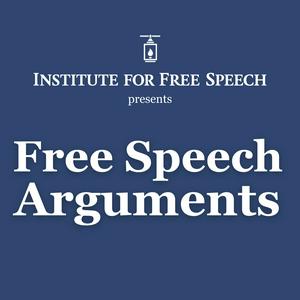
Ontvang de gratis radio.net app
- Zenders en podcasts om te bookmarken
- Streamen via Wi-Fi of Bluetooth
- Ondersteunt Carplay & Android Auto
- Veel andere app-functies
Ontvang de gratis radio.net app
- Zenders en podcasts om te bookmarken
- Streamen via Wi-Fi of Bluetooth
- Ondersteunt Carplay & Android Auto
- Veel andere app-functies


Free Speech Arguments
Scan de code,
download de app,
luisteren.
download de app,
luisteren.



